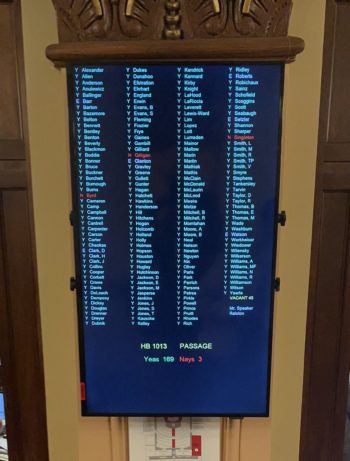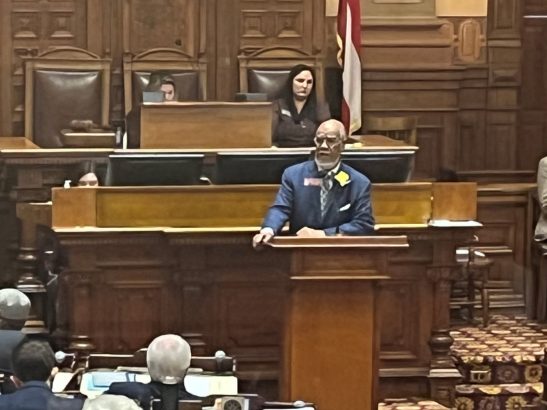The Georgia House on Tuesday overwhelmingly passed a wide-ranging mental health bill that includes stricter financial requirements on the state’s Medicaid managed care companies.
House Bill 1013 now heads to the state Senate, where its path is less certain. House Speaker David Ralston made a rare appearance at the podium to address his chamber before the vote, and he told his colleagues that he hoped the Senate wouldn’t water down the bill through “nitpicking” and would “appreciate that much is at stake… Lives are at stake with this bill.”

Ralston, a Blue Ridge Republican, said it’s “completely unacceptable” that Georgia, which he called the top state for business in the nation, should have a mental health system ranked at the bottom.
The bill, approved by a 169-3 vote, requires that health plans cover mental health and substance use treatment at the same levels as physical conditions. It also changes the protocols on involuntary commitment of mentally ill people, creates incentives for the training of mental health professionals, and facilitates “co-response” teams with police officers and mental health professionals around the state
The bill also says the state’s definitions of “medical necessity” on mental health treatment must come from standard clinical protocols, and not be determined by insurers.
A lead sponsor, state Rep. Todd Jones (R-Cumming), referred to his son’s battle with mental illness in a speech introducing House Bill 1013. He talked about the frustration and obstacles his family endured in getting his son the help he needed.
Justin went through six years of psychosis, “and he’s finally out of it,” Jones said. “I thank God for that.”
The legislation, he said, “will actually make a true difference” for people like his son. And it’s vitally needed, Jones added, with mental health and substance abuse problems rising amid the pandemic, and the suicide rate and opioid deaths spiking.
A key section of the bill requires that the managed care companies that cover more than 1 million Georgia Medicaid patients spend at least 85 percent of the dollars they receive from the program on medical care and quality improvements.
GHN and Kaiser Health News reported that Georgia is one of only a few states that don’t require a minimum level of medical spending and quality improvements for Medicaid insurers.
Jones told reporters that the goal is to have more money spent on patient care and not administrative costs.

The state House also approved a measure Tuesday that would allow grants for primary care facilities in rural and other high-need areas. Another bill that passed would allow patients to name a caregiver for help in their discharge planning by the hospital.
Increasingly, caregivers are performing medical tasks — such as medication management and wound care — for their loved ones who have been discharged from the hospital.
New rules on committing the mentally ill
The mental health bill sets up a multi-step process for involuntary commitment of someone who’s undergoing a mental health crisis.
Under current state law, mentally ill people must show an “imminent” risk of harm to themselves or others before they can be committed for treatment.
The bill would create several criteria for such commitment. The steps would include determining that a person presents a “substantial risk” of harm to themselves or others; and creates a reasonable expectation that a crisis or major psychiatric deterioration will occur without that care.

Other criteria include an assessment that there’s a reasonable prospect that hospital treatment would help that person; that other, less restrictive alternatives are not appropriate; and that the person has declined voluntary treatment or lacks the capacity to make such a decision.
Before the vote, state Rep. Mary Margaret Oliver (D-Decatur), who’s a co-sponsor of HB 1013, said the legislation largely targets people with severe mental health or substance abuse problems who are repeatedly in and out of jails and hospital emergency rooms. “Let us move forward for those who are truly in crisis,” she said.
And Rep. Calvin Smyre, a Columbus Democrat who’s the longest-serving House member, said to lawmakers, “This bill is a game-changer. It’s transformative.’’

